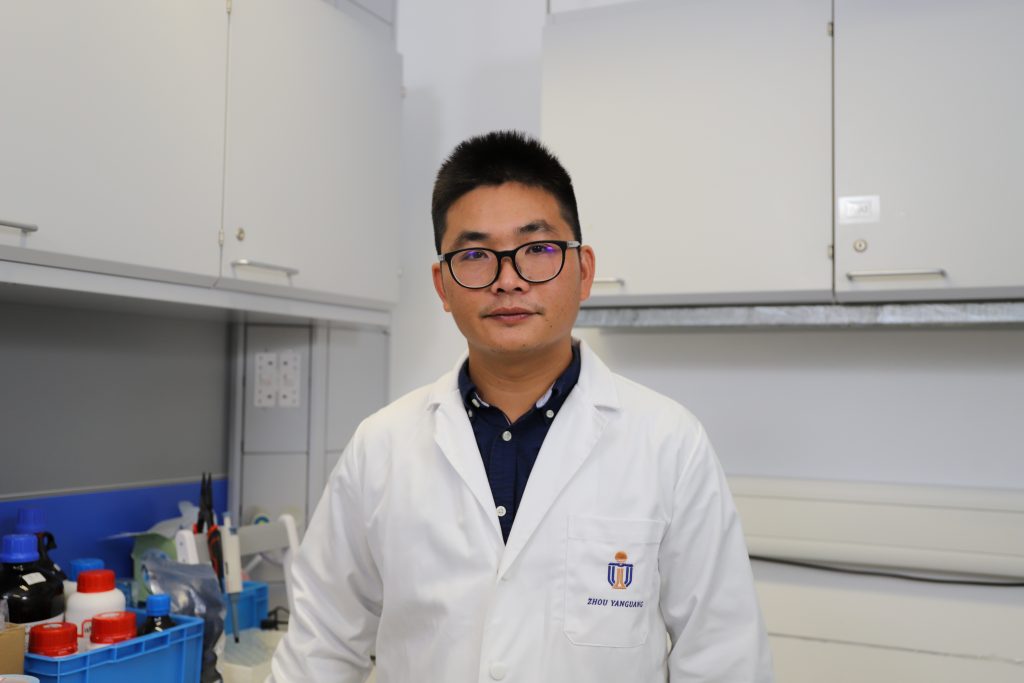Dr. Yanguang Zhou, a mechanical engineer at the Hong Kong University of Science and Technology, has been studying how energy could be efficiently used and conserved since 2014. In his research, the energy conversion efficiency in devices such as solar panels, batteries in new energy vehicles, buildings, and electronic chips. can be increased by means of heat dissipation and cooling technologies. It is critical to keep the device at a certain temperature to ensure safety and efficiency of the devices. Only if the temperature is appropriate, the device performance and efficiency will be maintained well. In his research career, Dr. Zhou has encountered many challenges and difficulties. “First, improving efficiency is quite challenging since an efficient and energy-saving cooling method is not easy to find. Second, designing an effective cooling strategy for devices requires a lot of cooperation among international counterparts, and it is not easy to achieve. Third, the Hong Kong government’s investment in energy utilization and integration is not enough, and the development of sustainable energy such as solar energy is also very limited.
Transitioning from traditional machinery to the field of environmental science is difficult for Dr. Zhou. “I almost missed the opportunity to study in Germany because of the financial situation at that time. Fortunately, I got a scholarship from the German government that supports me to further pursue my degree and obtain my Ph.D. in mechanical engineering from one of the best engineering universities around the world, i.e., RWTH Aachen University.” During his studies, Dr. Zhou realized much energy was wasted and a lot of exhaust gases would be produced when the engine was working, ultimately leading to higher levels of carbon emission. Therefore, he came up with the idea of improving energy efficiency to achieve low-carbon emission reduction goals.
While the road of research is not always plain sailing, Dr. Zhou still adheres to his original intention, contributing to save energy consumption through efficient energy utilization. Dr. Zhou said, “Hong Kong has many dense buildings and roads, which consume a lot of energy. If the energy conversion and heat removal efficiency are improved, I believe that the temperature can be greatly reduced, and a lot of electricity can be saved.” Dr. Zhou’s project is expected to provide a sustainable energy solution. And help Hong Kong and even the world to reduce carbon emissions and meet the target of the Paris Agreement to achieve carbon neutrality by 2050, which is of great significance to the low-carbon, smart city blueprint of today’s mankind.

